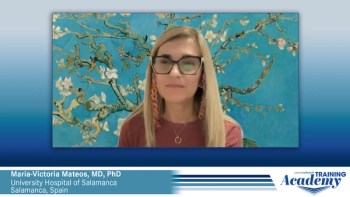
Dr Maria-Victoria Mateos shares her expert perspectives on current efficacy and safety data on combination strategies with bispecifics in relapsed/refractory MM.

Your AI-Trained Oncology Knowledge Connection!


Dr Maria-Victoria Mateos shares her expert perspectives on current efficacy and safety data on combination strategies with bispecifics in relapsed/refractory MM.
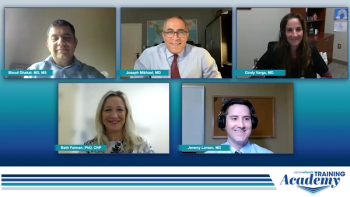
Expert panelists in multiple myeloma share their experiences with implementing bispecifics and transition of care in the community setting for patients with R/R MM.
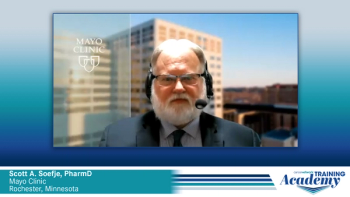
Frances A. Bell, NP, leads a conversation on key steps taken leading up to the initial administering of bispecific therapy in patients with multiple myeloma.

Comprehensive insights from experts in Mayo Clinic on the selection and sequencing of CAR T cell therapy or bispecifics, respectively, in patients with relapsed/refractory multiple myeloma.
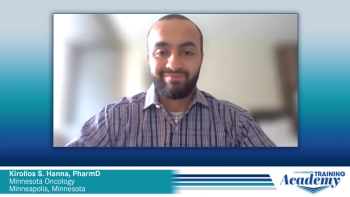
Shared insight on the role bispecifics will play in multiple myeloma management as other novel agents and clinical trials continue to enter the landscape.

Before closing out the panel’s review of clinical data behind bispecifics in relapsed/refractory multiple myeloma, Morie Gertz, MD, highlights use of cevostamab therapy in this setting.
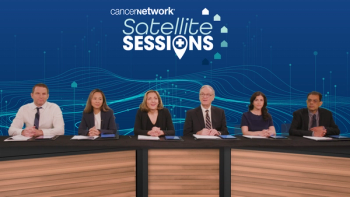
Elan Gorshein, DO, JD, MPH, describes potential approaches to managing high-risk patients with transplant-eligible NDMM.

Noffar Bar, MD, explains the GMMG-CONCEPT trial in patients with transplant-eligible NDMM.
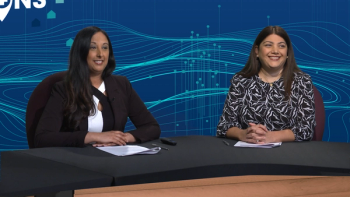
Closing out their discussion on multiple myeloma, expert panelists share expectations and hopes for the future treatment paradigm.
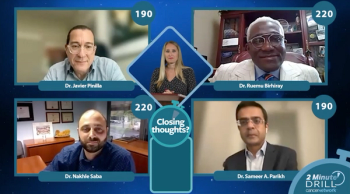
Thought leaders from various institutions offered their closing thoughts the 2023 ASCO Annual Meeting.
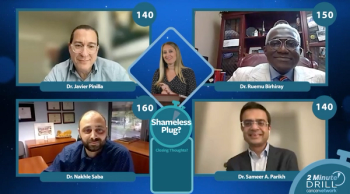
Thought leaders from various institutions offered their shameless plug the 2023 ASCO Annual Meeting.
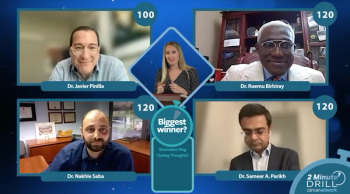
Thought leaders from various institutions offered their take on the biggest winner that came out of the 2023 ASCO Annual Meeting.
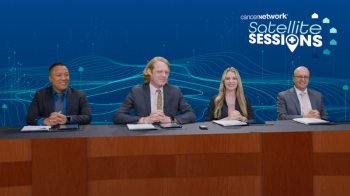
In the setting of transplant-eligible newly diagnosed multiple myeloma, expert panelists consider how risk status may affect the selection of induction therapy.
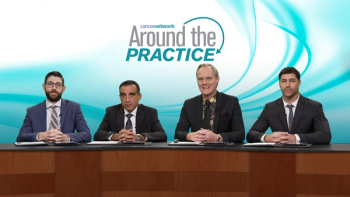
Experts present the case of a 58-year-old patient with IgG kappa multiple myeloma and offer their initial impressions.
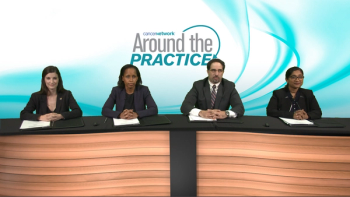
Experts on multiple myeloma discuss recent updates from the GRIFFIN trial on patients with transplant-eligible multiple myeloma.

A panel of clinical experts presents the case of a patient with high-risk multiple myeloma (MM) who underwent transplant.

Shared insight on the advent of quadruplet therapy regimens in the induction setting of transplant-eligible newly diagnosed multiple myeloma.

Clinical insights on treatment duration and the decision to place patients with newly diagnosed MM on maintenance therapy.
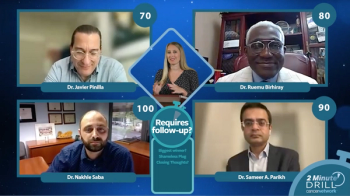
Thought leaders from various institutions offered their take on the trial the trial they think may need the most follow-up as a next step following the 2023 ASCO Annual Meeting.
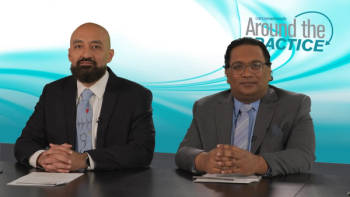
Abdullah Khan, MBBS, explains the current data on bispecific T-cell engaging antibodies for the treatment of relapsed multiple myeloma.
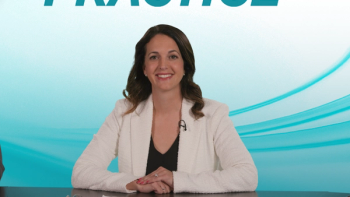
Ashley Rosko, MD, presents the case of a 72-year-old woman with relapsed multiple myeloma for discussion.
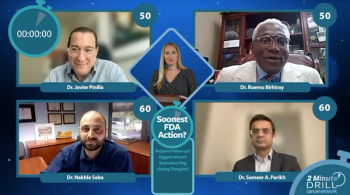
Thought leaders from various institutions offered their take on the trial they think may lead to the next FDA approval following data that were presented at the 2023 ASCO Annual Meeting.
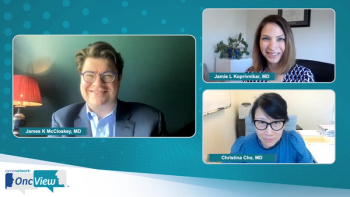
An overview of the various treatment options available for patients with MDS, with an emphasis on the importance of tailoring treatment choices based on risk profiles.

James K McCloskey, MD, Jamie L Koprivnikar, MD, and Christina Cho, MD discuss the diagnosis of myelodysplastic syndrome (MDS) and the importance of risk stratification in guiding treatment decisions.
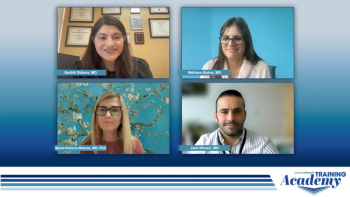
The panel discusses how they would approach the treatment of a patient with relapsed/refractory MM who progresses on BCMA-targeting bispecifics.

The panel discusses the approach to step-up and treatment dosing for bispecifics in their respective health care systems.

Expert hematologist-oncologists discuss how they incorporate teclistamab in their clinical practice as well as variations in access to bispecifics and CAR T-cell therapy.
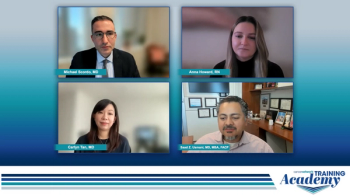
Experts on multiple myeloma provide insights on the management of hematological toxicities associated with bispecific antibodies.
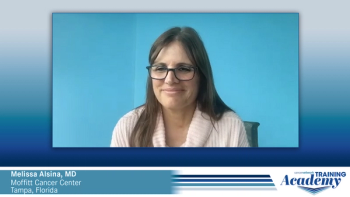
Melissa Alsina, MD, presents the case of a 39-year-old patient with multiple myeloma who has disease progression after initially responding to teclistamab.
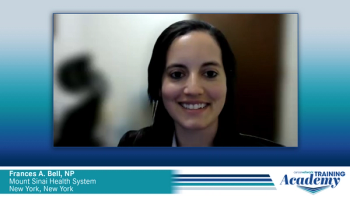
Panelists provide a broad-view perspective on established treatment pathways with bispecifics in multiple myeloma and the most prevalent challenges tied to this class of therapy.